It is certainly not strange for those who exercise it with protein supplements such as Whey Protein and Casein Protein.
Do you realize the difference between Whey and Casein?
If not clear, this article, BellyFatZone, will explain how to know which product you should choose to buy, which is useful and practical and how to store whey protein?
There are many types of protein powders on the market today compared to before – from rice, hemp protein to insect protein and beef protein.

However, the only two types of proteins that stand up despite the flow of time are casein and whey.
Similarities and differences between Whey and Casein
Although they are all derived from milk, obviously, these two types are completely different.
This article will explain in detail the differences between casein and whey, the health benefits of these two types, and how to choose the one that suits your needs.
1. Both are extracted from milk
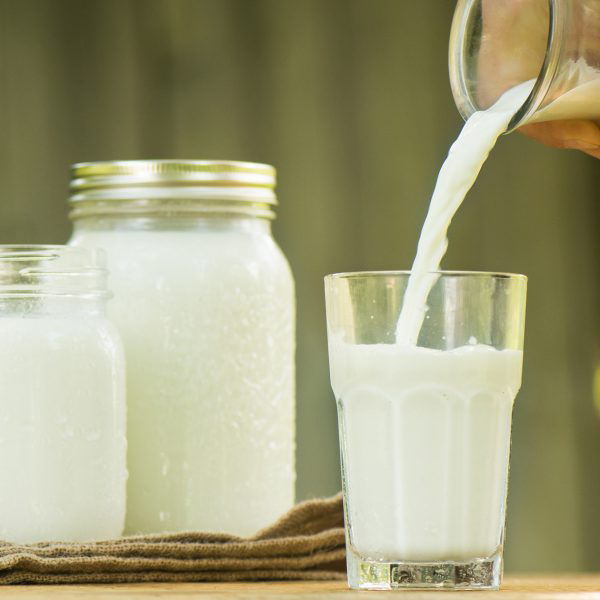
Casein and Whey are the two types of protein found in cow's milk, respectively 80% and 20% milk protein.
These are high-quality protein powders because they contain all the essential amino acids you have to absorb from the outside food, which your body cannot synthesize.
Besides, they are straightforward to digest and absorb very quickly into the body.
Casein and whey are both byproducts of the cheese-making process. During the cheese-making process, special enzymes or acids will be added to the milk being heated.
These enzymes or acids will cause the casein in the curd to turn solid or separate from the liquid form.
- This liquid form is Whey Protein, which is then separated and dried to form a powder and used in food products or dietary supplements.
- The remaining frozen form of casein will be separated and dried to make protein powders or added to dairy products, such as cheese.
Read more: Should I Take Whey or Mass Gainer?
2. Whey Protein is better than Casein in its ability to build muscle
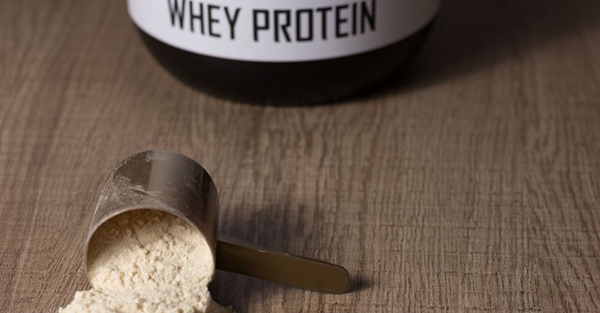
Whey Protein is not only better suited for those who exercise because of its rapid absorption but also because of its extremely high amino acid content.
It contains more BCAA amino acids, while casein contains higher levels of these amino acids, including histidine, methionine, and phenylalanine.
While all essential amino acids are strong in building muscle, leucine is one of the most important amino acids to initiate this process.
Thanks to its high leucine content, Whey protein stimulates muscle protein synthesis (the process that helps muscles grow), which is much better than casein, especially when absorbed in parallel with exercise.
View more: Whey Protein Recipes Shakes
3. Both contain different chains of amino acids
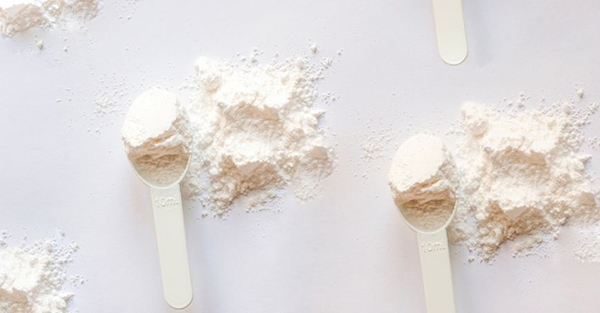
Casein and Whey Protein contain peptides with different biological activity. Those are beneficial chains for the body.
- Casein Protein
If you have carefully read the article What is Casein Protein, make sure you understand that casein contains several chains of peptides with biological properties, which have been shown to benefit the digestive and immune systems.
Some of the biological peptides found in casein also provide cardiovascular benefits by reducing blood pressure and reducing blood clots' formation.
These peptides act like ACE enzymes, commonly found in blood pressure control drugs.
They often contain various minerals, like calcium and phosphorus, that help improve digestion in the stomach.
- Whey Protein
Whey Protein contains lots of powerful amino acid proteins, which help boost the immune system.
Amino acids that boost this immune system contain ingredients that help kill or slow down harmful viruses or bacteria.
Numerous studies have been done on animals and show that these proteins help promote antioxidant effects and stop tissues and cancer growth.
Besides, some of these amino acids transport important nutrients, such as vitamin A, throughout the body and improve the rate at which other nutrients are absorbed.
4. Benefits of protein in the diet

You should carefully read the protein article; you will most clearly understand the importance of protein.
Protein plays many important roles in the human body, helping it turn into one of the most important health factors.
These roles include:
- Enzyme: Protein is responsible for carrying out many chemical reactions in the body.
- Antibody: A protein that helps remove foreign molecules, such as viruses, that help fight inflammation.
- Signaling: Many proteins are hormones, which are responsible for signaling to cells.
- Body structure: Protein provides and supports the skin, joints, and ligaments.
- Transport and storage: Protein helps move active substances, including hormones, medications, and enzymes, throughout the body.
In addition to its basic nutritional functions, protein has several other benefits:
- Lose fat: Protein helps reduce fat by reducing appetite and boosting metabolism.
- Controlling blood sugar: Protein, when absorbed as a substitute for carbs, can help improve blood sugar control in people with type 2 obesity.
- Blood pressure: Scientific studies have shown that those who absorb more protein, regardless of its source, help lower blood pressure.
These benefits come from high protein intake, which has nothing to do with casein or whey alone.
5. Whey or Casein better for you?
Although the amino acid composition table is different, whey and casein differ little in the nutritional content.
A standard scoop of 31g Whey Protein includes:
- Calories: 110kcal
- Fat: 1g
- Carbs: 2g
- Protein: 24g
- Iron
- Calcium
A standard scoop of 34g Casein Protein includes:
- Calories: 120kcal
- Fat: 1g
- Carbs: 4g
- Protein: 24g
- Iron
- Calcium
Note, the nutrition facts panel may vary, depending on the particular product you buy, be sure to read the label carefully.
That's all the important information you need to read carefully about the similarities and differences between Whey and Casein Protein.
How to Store Whey Protein for long use
If you're rich enough to repurchase Whey, if you break it, then there's nothing left to say. If you want to use a good value for money, you must consider these best Whey preservation methods.
1. Whey Protein powder lasts for how long?
Most muscle milk products can be used for 2 years from the date of manufacture. But most accurately, you should read the term written on the package.
Besides, if not properly stored, protein powders can be damaged, such as watery or lumpy, even if the term on the product remains. You should also pay attention to this issue as well.
2. Is it ok to drink Whey after expiry?
Anything that expires is not good, especially what you load into your body like medicine or food.
Whey is a supplement, too. Slightly reduced use, severe can cause many side effects of Whey Protein milk such as abdominal pain, diarrhea, or accumulation of toxins in people.
Some amino acids in Whey decompose, and it is no longer a complete source of protein.
If you keep the dough completely dry, the bacteria will almost not grow. So if you miss a few days overdue, you can at least drink it, but it's best not to.
3. How to know if Whey Protein is broken?
Protein powders from milk, soy, or eggs will often have an unpleasant smell; the dough will be moist and lumpy if it is broken.

If exposed to water, it may be damaged before the expiry date indicated on the product.
If you still feel dry and don't smell, try a little. If the dough tastes like cardboard, discard it.
Detailed instructions 10 ways to preserve milk Whey standard
There will be a description of the product's packaging, but it may not be detailed, or it may be too English for you to read. So follow the steps below.
1. Buy products of major brands
Why should you choose items from famous brands? Of course, to get quality products. But besides quality, what else is there?
Big, well-selling brands will not have many products on stock for too long. You will not be afraid to receive the Whey jars, the Whey bags of dates that have been lying for months, years on the shelves.
2. Check the expiry date
The expiry date will certainly have an expiration date, depending on the product in different positions. When choosing at the store, go ahead and pick the one with the longest term.
In the course of use, you should also regularly check the term. If you are using Whey out of date, then boldly leave, don't try to regret it. Not only is there no benefit, but it also hurts more.
3. Buy just enough Whey
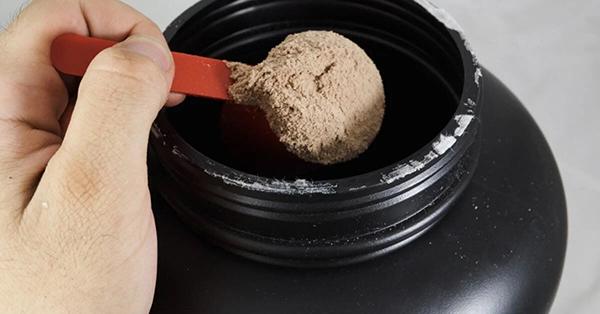
The bigger the size, the more beneficial it is because the price per dose is lower. However, if you do not buy it in time, it will be more wasteful.
First, figure out how many grams of protein you need to consume per day and how much extra each month, except for the amount of natural protein in the food you need to add. You will buy products of the right weight.
4. Do not open the lid when not in use
Note that the expiration date shown on the package is for unopened products. If you open the lid, then it's different.
Opened milk cartons can be affected by temperature, humidity, and microorganisms in the environment.
If you have not used it immediately, do not remove the sealing layer on the box's lid. Do not be impatient, but “open the store” from the new purchase offline.
5. Keep the product in a cool, dry place
According to US standards, dry food is best stored at about 72 degrees Fahrenheit, which is about 23 degrees C. You need to find a cool, dry place in the house to keep Whey.
Should Whey be kept in the fridge?
It is best not to store the protein powder in a refrigerator or freezer because every time you take it out, store it, a temperature change will cause condensation of the water inside to make the dough moist.
Do not place the product near sources of heat such as stoves or direct sunlight.
6. Close the cap tightly after each use

After each time you take the dough to make, do not forget to keep the lid tightly closed to avoid the moisture inside the powder makes whey clumps, reducing quality.
When opened, it should not take too long. Use a dry spoon, dry hands to remove the dough, avoid contact with water.
For Whey in particular and all dry foods, such as mass milk, powdered milk, and not allowing moisture to accumulate is the most important thing. Humidity can be a condition that causes mold and bacteria to spoil the product.
If your Whey powder product is in a big form, lock it carefully after each use. Or more carefully, you can pour the powder to store in dry boxes, with lids.
7. Add moisture-proof packages to the Whey box
If you live in wet weather, high humidity, you should buy more desiccant packages, put them in the Whey box to extend the shelf life. Some Whey products even have this package available.
When buying a desiccant package, you should choose the type of clean packaging, no signs of creasing, tearing, discoloration, welding edges carefully.
You can buy it at pharmacies or some reputable addresses online.
8. Use regularly
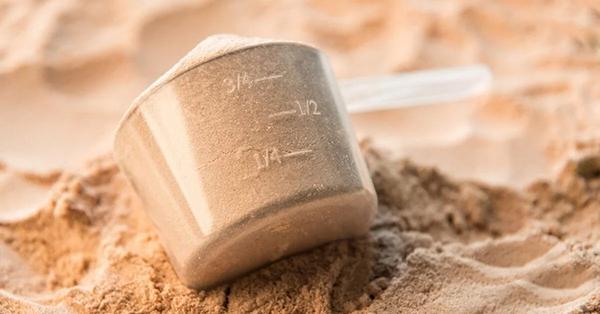
Many of you buy Whey and then lazy to drink, do not remember to drink every day. As such, the effect is reduced, but Whey is long-term, easy to overdue.
Some of you regret not to dare to take enough doses, only use a little. Saving too much until it cannot be used is even more wasteful.
9. Is it possible to freeze Whey Protein?
OK. But this method is a bit of work and is not necessary. If you need to store for a long time, you can try to apply.
Prepare
- Freezer
- Zip bags or containers with the words “freezer safe” or “freezer quality,” meaning they can be used in the freezer.
- Sticker
Perform
- Put whey powder in a box or sealed bag, leaving about 2.5cm to prevent it from expanding.
- Close the lid or zip lock the bag tightly, label the box and date.
- Store in the freezer and use it for 3-6 months.
- When you want to use, remove, defrost for 24 hours, then do not return to the freezer.
10. How long does it take to mix with water?
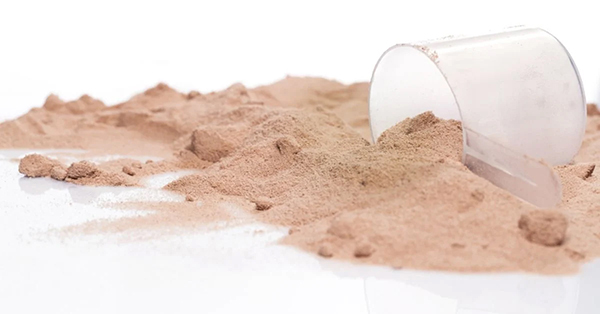
- If you keep it in the fridge, it can be kept for about 2 days. Before using, shake well.
- If you mix Whey with other types of milk or fruit, you should use them all in one day and store them in the refrigerator.
- Over time, the milk will taste very terrible and difficult to drink; the color can also be changed. So, you should mix 1-2 times a day and use it up during the day.
The above are the 10 best ways to preserve Whey Protein, help you ensure product efficiency, and do not encounter unwanted side effects.
Use it appropriately and economically; you don't have to throw away a little Whey.
Questions About Whey Protein:
- Are you a newbie who has just entered the training path?
- Still have questions about sports nutrition supplements, especially whey protein?
Let me help you answer 5 common questions about whey protein and easily choose the right protein product for you! Discover now!
1. Can men and women use the same formula for calculating the same amount of protein?
Exactly, the Protein supplement for men and women is the same; if the formula for Macro calculation, the amount of Protein for Men and Women for the same goal of weight and muscle training is the same, then the addition of Protein is the same.
Derived from the same genetic, digestive human. So guys, let's calculate the macros for bears; feel free to apply your formula.
2. How to drink whey without acne?
To drink whey without pimples, choose Pure Whey (isolate or hydrolyzed) Pure Whey.
Besides, drink enough 2-3 liters of water/day. Basically, no matter what food you add to it, you need to draw water to activate it. So drink enough water to make sure it doesn't get hot.
3. How many grams of protein are needed daily?
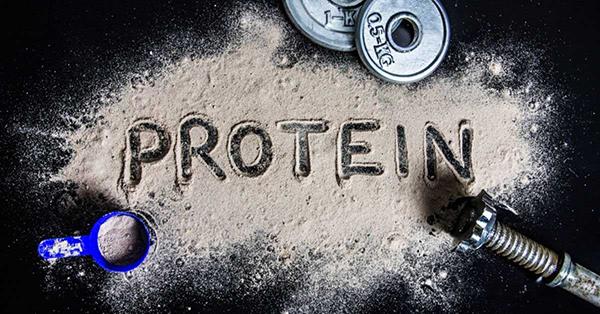
Here's how to calculate the amount of protein needed for 1 day for the average person's needs.
– Adults (> 18 years old), completely normal health, sedentary or very little or even not like sports: need to load about 1.1-1.5 grams of protein/kg of body weight.
This is an essential source of protein to maintain a healthy body.
– Adults, who exercise and exercise (about 3-4 sessions/week) want to lose weight, gain muscle: need to load about 1.7-2.2grams of protein/kg of body weight.
*** If you are in the process of weight training, please apply the following 2 calculations:
– Female mature, perfectly healthy, the main goal is training for toned muscles, weight loss, muscle gain, maintaining muscle and body shape: need to load about 2.2-2.6 grams of protein/kg amount of body.
– Mature men, good health, the goal is to train to have big muscles, ton, increase muscle, reduce fat, maintain muscle after losing fat, increase strength: need to load about 2.2-3.3 grams of protein/kg body weight.
Now, take your weight x (multiply) with the index suitable for yourself above to determine the number of proteins to eat each day.
Example: If you are a male, weigh about 60kg, and are aiming to gain muscle, then you need to load 60 × 2.2 or 60 × 3.3 = 132 – 198grams of protein/day.
Note, the number of kilograms of your body weight should be the number of lean body weight.
If you register because of too much fat, you should take the number of bodyweight pounds = the number of pounds of body weight you want.
For example, this time, you are weighing 70k but too much fat. You want to reduce fat to 65kg. Then take your body weight at 65 to calculate the total protein you need to eat each day.
4. Why say the gym must supplement protein?

Protein plays a role in almost everything that happens in your body.
Protein in the blood transports oxygen throughout the body. It builds and repairs tissue (including muscle tissue) and produces the body's enzymes, hormones, and other chemicals.
Protein is a basic building block of bones, muscles, cartilage, organs, skin, blood, hair, and nails.
The antibodies that our bodies use to prevent diseases and infections are made up of proteins and enzymes that read the genetic information in our DNA to create new molecules.
Messenger proteins transmit signals between cells, tissues and organs, and transport proteins carrying atoms and small molecules throughout the body. Therefore, the addition of protein is essential.
5. Can whey protein for children under 16 years old be used?
Children need a lot of protein to grow, but this doesn't necessarily need protein supplements.
In fact, if you feed your child or child, the addition of Whey is not necessary, but if they eat too much of an ingredient such as sugar, or fat, they may lack protein.
Whey protein supplementation is completely safe for children because the nature of Whey is only concentrated milk and is filtered out of fat and starch.
You will see your child develop better, increase physical activity compared to peers. And gain more physical advantages in adulthood.
View more:
- How to Lose Weight With Almond Milk and Nut Milk?
- Benefits of Casein Protein Powder and How to Use it Effectively
- Tips for Building Muscle and Losing Fat Safe and Effective for You
- Omega 3 – Omega 6 Rich Foods List Helps You to Replenish Good Fats
References






